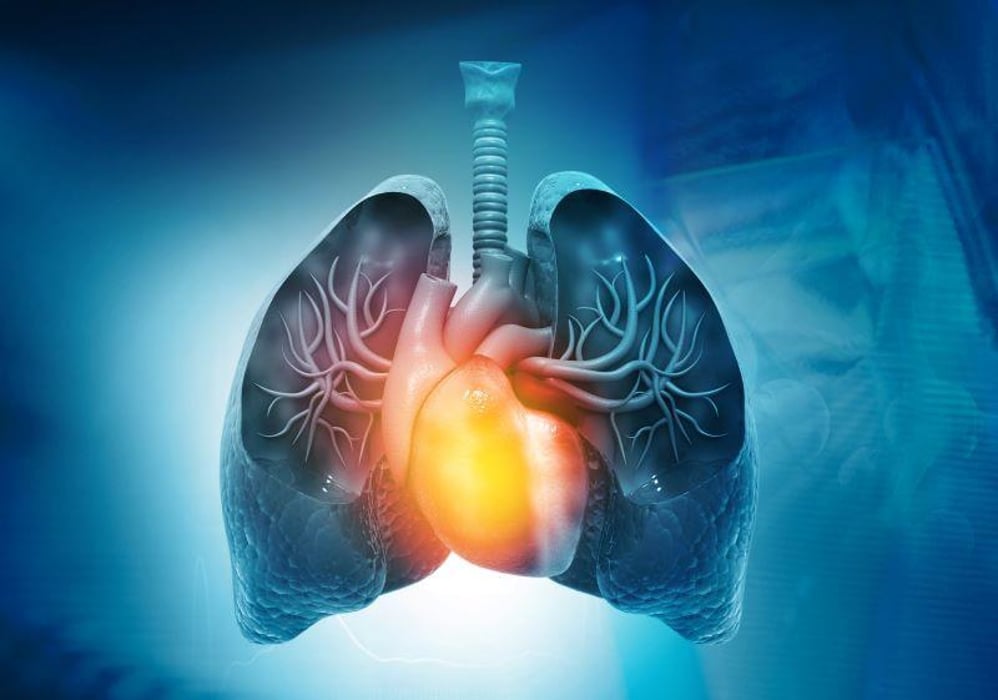Hypoxic, Ventilatory Burdens in OSA Predict CVD Morbidity and Mortality

TUESDAY, Aug. 1, 2023 (HealthDay News) -- Hypoxic and ventilatory burden in obstructive sleep apnea predict cardiovascular disease morbidity and mortality, according to a study published online July 7 in the American Journal of Respiratory and Critical Care Medicine.
Gonzalo Labarca, M.D., from Brigham and Women's Hospital and Harvard Medical School in Boston, and colleagues examined the association of hypoxic burden with incident cardiovascular disease (CVD) compared to that of ventilatory burden and arousal burden in obstructive sleep apnea. Hypoxic, ventilatory, and arousal burdens were measured from baseline polysomnograms in the Multi-Ethnic Study of Atherosclerosis (MESA) and the Osteoporotic Fractures in Men (MrOS) studies. Ventilatory burden was defined as event-specific area under ventilation signal, while arousal burden was defined as normalized cumulative duration of all arousals.
The researchers found significant associations for hypoxic and ventilatory burdens with incident CVD (adjusted hazard ratio per 1 standard deviation increase in hypoxic burden: 1.45 and 1.13 for MESA and MrOS, respectively; ventilatory burden: 1.38 and 1.12 for MESA and MrOS, respectively); no association was seen for arousal burden. There were similar associations observed for mortality. Ventilatory burden explained 78 percent of the variation in hypoxic burden, while other factors explained less than 2 percent of the variation.
"We think that including a higher-risk version of obstructive sleep apnea in a randomized clinical trial would hopefully show that treating sleep apnea could help prevent future cardiovascular outcomes," coauthor Ali Azarbarzin, Ph.D., also of Brigham and Women's Hospital and Harvard Medical School, said in a statement.
Several authors disclosed ties to the pharmaceutical industry.
Abstract/Full Text (subscription or payment may be required)
Related Posts
Monkeypox May Get New Name to Curb Stigma
MONDAY, Aug. 15, 2022 (HealthDay News) – Monkeypox could soon get a new...
Mejillas más delgadas, muchas modificaciones: los cirujanos plásticos de EE. UU. cuentan las tendencias
MIÉRCOLES, 15 de febrero de 2023 (HealthDay News) -- Desde esculpir rostros...
Biden to Strengthen Push for Vaccine Mandates in New COVID Plan
THURSDAY, Sept. 9, 2021 (HealthDay News) -- President Joe Biden is slated to...
Household Air Pollution Linked to Cardiac Autonomic Function in COPD
TUESDAY, Dec. 13, 2022 (HealthDay News) -- For patients with chronic obstructive...
